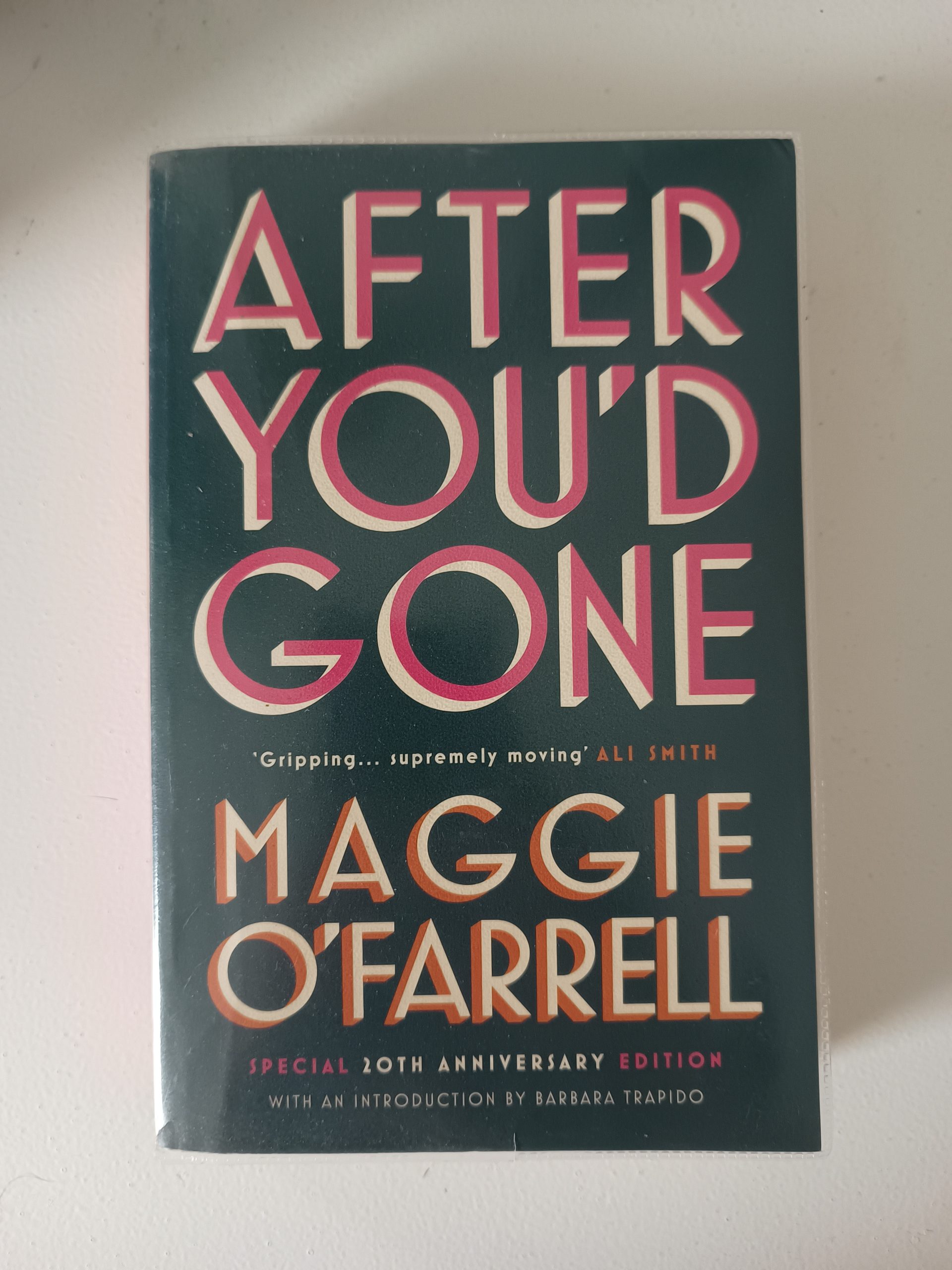After You'd Gone, by Maggie O'Farrell
After you'd gone - the title of this book is heavy with a sense of too-lateness. It's a title that looks back from a place of loss: we're in the time 'after' and we're thinking about the time before. This is a book that uses time and reflection for tragic effect - and it does so beautifully. This book is full of love and humanity, loss and regret, and its different threads are bound together with the shared aching inevitability of being too late. It's just as gorgeously moving as the reviews promise. I loved it.

Within the first few pages of the novel, the heroine Alice Raikes is in a coma. Suddenly cutting short her trip to Edinburgh to visit her sisters, she returns home shaken to King's Cross, and steps out into the traffic on a busy road. She has seen something in Edinburgh, something significant - but what sight could possibly cause such a response? O'Farrell doesn't tell us what, yet.
The first thing I love about this book is that it's written beautifully. I was struck by how observant its imagery is: how attuned to little visual details and how eloquent in its capturing of them. When Alice waters her pot plant it is so thirsty that the water gathers in 'accusing, mercuried drops' on the surface of the soil; when she switches on the light her cat's pupils 'narrowed like the closing of a fan'. These tiny nuggets of imagery all the way through the book are not only beautifully phrased, but are perfectly reflective of real life: I kept finding myself thinking 'yes, that is exactly what it's like'. O'Farrell's narration notices the detail of the everyday, and captures it exquisitely.
The most compelling aspect of this book, though, was its use of time - which was particularly interesting because of the heroine's unconsciousness. Present-day Alice hangs in stasis, sometimes vaguely aware of her surroundings, sometimes remembering things, but never doing anything - she is strangely timeless in a world that is still moving. The narrative eye similarly slides between times and perspectives. We are occasionally in Alice's present, recognising the muffled voices of her family nearby, but we are also shown scenes from her young childhood, and from her recent past as she meets and marries John. There are sections seen through the eyes of her mother Ann too, both in the present and from Ann's own past.
What's cool is that O'Farrell flits between each, every few pages (or even paragraphs) switching to another time, another place, another angle. None of these distinct threads are labelled - white space marks each shift but we are never told where we are going. This has a fantastically dizzying effect, and the movement is brilliantly controlled. We begin each new section with a vertiginous sense of disorientation, but only ever for a matter of moments - O'Farrell is so skilled at orientating us, picking up where she left off, reminding us where we are with deft subtlety. She throws us between her different threads of time and perspective, but she catches and directs us too, and as such she constructs the tapestry.
There are great rifts, secrets and tragedies lurking in the Raikes family's past, and the further we read the more clearly the past comes into focus. The whole book is structured as a piecing-together of the lead-up to a fateful event, and this gives it a sense of tragic inevitability which is poignant and beautiful. This structural craft highlights the fleeting magic of human love, the importance of seizing the moment, and the knock-on effect of past choices that bleed into the present. Cleverly, O'Farrell's prose style works to the same effect: moments before stepping into the road, Alice is walking to the shop whilst remembering what she has seen in Edinburgh. O'Farrell melds Alice's present thoughts - 'Did she need anything else? Milk maybe, or bread...' - with a vivid flashback to the train station toilets in Edinburgh - 'the stainless steel basin, sprayed with silver beads of water', 'the lurid pink soap coiled into her wet palm'. Present-moment Alice is intruded upon by the memory of past-Alice; in a masterful representation of a helplessly wandering mind, O'Farrell crowds the present with visions of the past. Across the whole book, in structure and in language, 'before' seeps into 'after'. It's so gorgeously sad.
Overall, this was exquisitely written, cleverly crafted, and very very moving. Maggie O'Farrell does beautiful sadness very well (see my review of Hamnet, which notably made me cry!). I would strongly recommend After You'd Gone.
